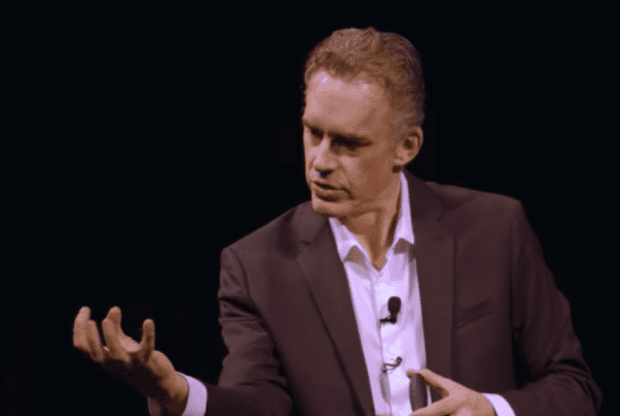Jordan Peterson & Tyler Cowen

I really enjoyed this podcast interview Tyler Cowen did with Jordan Peterson. You can listen to it, or read the transcript. Here are excerpts that jumped out at me:
On cognitive ability and our political myths:
PETERSON: I don’t think that people want to understand the rule of raw general cognitive ability because it’s such a determining factor, and it’s hard for people on the right and the left to accept it. People on the right think there’s a job for everyone if they just get off their lazy ass and do it, and people on the left think anybody can be trained to do anything.
Both of those things are seriously wrong. One example that I often use is that the American military decided a couple of decades ago that it was illegal to induct anybody into the armed forces who had an IQ of less than 83. That’s an unbelievably important thing to know because that’s about 10 percent of the population.
You’ve got to understand what this means. It means that a very large organization that’s desperately hungry for manpower, especially under circumstances of extreme crisis, is unwilling to accept 10 percent of the population because they have determined — after 100 years of doing absolutely everything they possibly could to the contrary — that there isn’t a single thing that they can train someone like that to do that’s not counterproductive. Right.
That’s terrible. It’s terrible. Because if the armed forces is approximately as complex as general society is — which I think is a reasonable supposition — it means that 10 percent of the population cannot find meaningful, productive, and engaging work in a modern society. And that proportion is probably, although not inevitably, expanding. That’s a huge problem. That’s a huge underclass problem.
On the evil of human resources departments:
COWEN: If we turn to senior management of large American companies, as a class of people — and I know it’s hard to generalize — but what do you see them as just not getting?
PETERSON: I would caution them not to underestimate the danger of their human resources departments.
COWEN: Say more.
PETERSON: Yeah, well, because I see that the social justice etiology that’s destroyed a huge swath of academia is on the march in a major way through corporate America. And if the corporate people think they’re immune to it, they’ve got another think coming. It’s not like they’re any smarter than the universities.
COWEN: And who gave the HR department so much power? How did that happen? What myth did we follow that led us wrong?
PETERSON: That’s a good question because they had virtually no power to begin with, right? HR departments have always been underpowered, so to speak.
COWEN: Sure, of course.
PETERSON: Yeah, well, all of a sudden now, they’ve become ethics departments. And people who take to themselves the right to determine the propriety of ethical conduct end up with a lot more power — especially if you cede it to them — than you think. And that’s happening at a very rapid rate.
The doctrines that are driving hiring decisions, for example — any emphasis, for example, on equity, or equality of outcome — it’s unbelievably dangerous. You don’t just pull that in and signal to society that you’re now acting virtuously without bringing in the whole pathological ideology.
And look out when you do, because it’s like, there are elements of it that are extraordinarily old, and that would be the resentful element in terms of patterns of thinking. But the collectivist ethos is very, very attractive to people, so you have to be very careful of it.
He has a really interesting psychological interpretation of the Book of Exodus, which includes this:
And then the other thing you see that’s so lovely, in the book of Exodus — it’s so accurate — is that, what happens when you’re a fractious group of people who’ve been freed from the previous tyranny? And the answer is, well, you immediately turn to the worship of false idols. And that’s part of the fragmentation process that characterizes people who are no longer united by an overarching narrative. That’s the chaotic element, and of course, that’s happening in our society. That would be reflected in the consequences that both Nietzsche and Dostoevsky prophesied when they talked about the death of God.
Read or listen to it all. There’s so much more there.
That last graf I quoted reminded me of something an elderly Czech professor told me last year:
“Nazism made an idol of race. Communism made an idol of the people, as defined by Marx. I came to this country because it was liberal, and welcomed people like me. But things are changing. I can’t put my finger on what liberalism is making an idol of, but something big is happening.”
Yes, it is.
